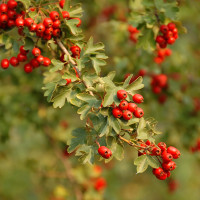Health depends on being in harmony with our souls…Dr. Edward Bach 1932
In this stress and toxin dense world, where taking medication for anxiety and depression is considered normal, life lends not easily to emotional care of the heart. Complicated circumstances, overwhelming choice, troubling world events, daily tensions, and lack of adequate sleep all lead to a setup that stifles the heart from expressing its predestined joy. We need allies to command a chance, not only as noble people surrounding us, but also by looking to the incredible kingdom of plants.
Small messages decode big to the heart. Mayan people in Mexico do not greet each other with “How are you?” Their words “K’uxa-elan?” translate to how is your heart today. The responses: my heart is peaceful, my heart is bruised, my heart is perfumed, etc. And at parting, the reply: “Let your heart be well today.” Another salutation example from Muslim cultures “Kayf haal-ik? How is your heart doing in this moment, with this breath? Such gracious human connecting interactions feel more real than rote how are you-ok interchanges. Language like this that promotes attention to feeling by asking and wishing well for the heart must contribute to wellbeing.
In Traditional Chinese Medicine Five Element theory, emotions link to organs of the body, affecting their function. Joy is the emotion of the heart, if the heart is harmonized and healthy it will feel joy more readily. There has to be balance. Too much joy or lack of it will manifest as physical, emotional, and spiritual problems. All too often the equilibrium tips to the melancholy side. Sadness and I are intimately acquainted. I do not consider it a friend. My closest confidantes constantly push pharmaceuticals to which I adamantly refuse. They interpret this as resistance to help myself, but this is not the case. I am convinced of a better way.
While I have mastered neither, I believe there are two keys for unlocking our own personal happy heart.
“Depression is now linked to inflammation which relates back to gut bacteria…Dr. David Perlmutter, author Brainmaker
During the past five years, new research has exploded facilitating deeper understanding of the brain’s relationship to digestion. The gut microbiome, now considered its own body organ, comprises a complex ecosystem of intestinal bacteria that in addition to aiding digestion and supporting immunity, profoundly impacts the nervous system and emotions. This occurs through the gut-brain axis and the enteric nervous system. Several antidepressant medications target increases in serotonin levels. Serotonin being the hormone that promotes feeling of calm, balance, and happiness. Research is showing that most serotonin is actually produced in our digestive systems and then transported to the brain through the enteric nervous system and the vagus nerve, which connects the two. When antidepressant medications do not work, digestive problems may be the reason. Additionally studies are showing that diet changes can make more impact in depression than medications. It is a huge topic, one not to be ignored. Digestive complaints whether constipation, loose bowel movement, heartburn, bloating, gas, or food sensitivity that occur with emotional concerns suggest some association. This is far from an easy fix; you almost have to be a detective to come up with solutions. But there are ways. Nature, plants and herbs, act as an alliance both as food and medicine. Much promise exists here for healing the hearts afflictions. Focusing on soothing digestion affords a two for one consequence.
When you do not know the nature of a malady, leave it to nature; do not strive to hasten matters. For either nature will bring about the cure or it will itself reveal clearly what the malady really is….Avicenna
Another study area focuses on a basic principle, the benefits of interacting with nature. Our industrial and technology driven way of life cannot suppress the urge for green world connection ecologically, medicinally, emotionally. The resurfacing interest in the ancient art of herbalism is part of this movement. Herbalism’s energetic side speaks to a plant’s spirit. While plants impart their wisdom in many ways, the flower may be our best window inside. Symbolic flower-heart connections obviously exist in the ways flowers are used as signs of love, sympathy, and ceremony. In the early 1900’s Dr. Edward Bach, an immunologist and founder of Bach Flower Essence Remedies, took this giant steps further by developing a system to harness a flower’s ability to transform negative thoughts and feelings. He believed that drops of a flower’s essence could be preserved in water and then taken internally to restore emotional and spiritual balance. Flower essences heal the heart at a spiritual level that is hard to explain. For those who feel wounded and broken they brighten and open and allow in light. Flowers touch the senses with their beauty, colors, fragrance, and gentleness; even add sounds of spring birds and butterflies. Each flower holds a unique ability to touch an emotional ailment of the heart. A flower essence captures these energetics and insight. Their reach is subtle yet powerful, gentle and comforting, therapy for the heart that can be transformative.
Adopt the pace of nature; her secret is patience…Ralph Waldo Emmerson
Plants cannot make sadness and heartbreak disappear, but perhaps they become a bit more endurable with the use of herbs.
Herbs can:
Open the heart and lift the spirit – rose petals
Strengthen and provide resilience from heart break – hawthorn
Soothe, relieve, and comfort
Calm emotional upset
Help to overcome grief
Promote restful sleep for restoration
Settle the mind and a raising heart
Offer respite from chaos
Elevate mood
Quiet hormonal surges
Dissipate doom, black cloudy feelings, hopelessness
Improve digestion and support the enteric nervous system
Nourish and nurture
Herbs for Nourishing the Heart’s Spirit
- Black Cohosh
- Chamomile
- Damiana
- Eleuthero
- Hawthorn
- Holy Basil
- Kava
- Lavender
- Lemon balm
- Linden flower
- Mimosa
- Motherwort
- Oats
- Passionflower
- Rose
- Rosemary
- St. John’s Wort
- Valerian
Plant Profile
